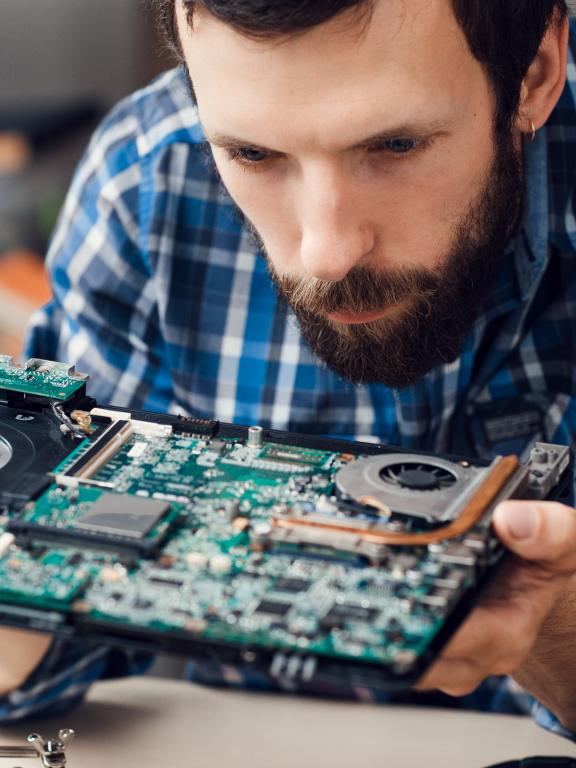Our Electronics Engineering Technology program will provide you with introductory skills necessary to analyze and troubleshoot electronic systems. You’ll gain knowledge and hands-on experience with topics such as circuit analysis, analog and digital electronics, and industrial safety.
This is a certificate program and requires fewer credits and less time to complete than a degree or diploma program. Certificate programs can be taken alone but are often taken along with other Industrial Manufacturing programs.
The Electronics Engineering program also offers degree, diploma, and additional certificate options.
This certificate is also available to high school students through our Career & College Promise program.
Plan of Study
The recommended course sequence for this program and a complete list of related classes are available in the Academic Catalog. Click the button below to view a copy of this plan of study, which is also available as a PDF.
